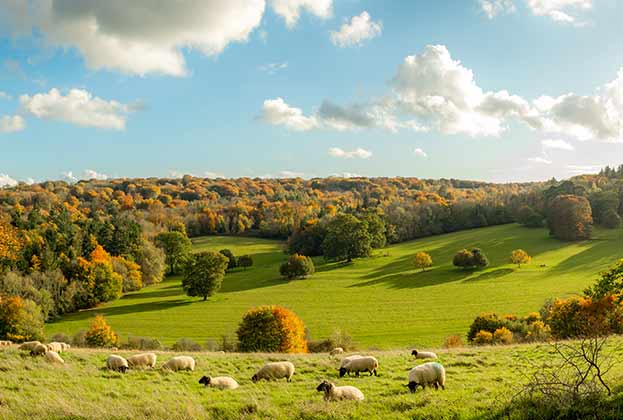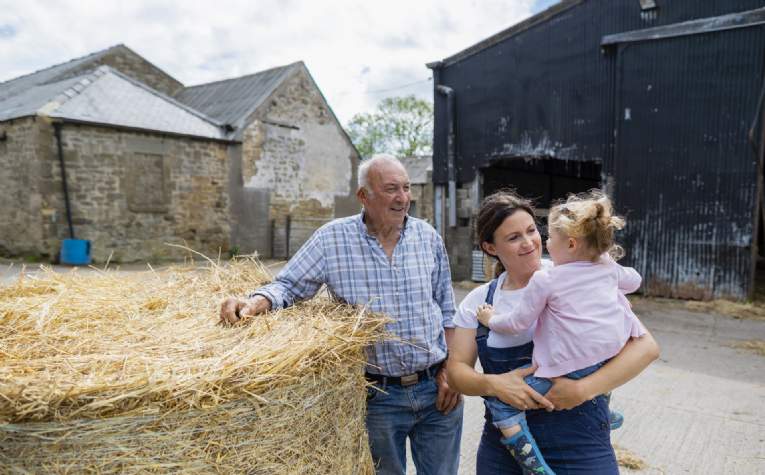The ownership of country houses, land, farms and estates is a privilege and hugely enjoyable, but it does come with responsibilities which, if ignored, could leave the owner at risk of criminal prosecution or a potential negligence claim. Here, we look at seven of the worst sins of rural estate management, why they matter and how to avoid committing them.
1. Public and Employees Liability
This is now a standard part of many insurance policies but there is widespread concern that the standard £5m is no longer sufficient to cover serious personal injury claims. The consequences of a claim exceeding this amount are significant, with the insured potentially having to cover the balance. We now recommend that estates consider increasing the level to £10m or more – especially where there are shooting activities, open days or other events which might increase risk or bring the general public onto the property and into the main house.
2. Gas Safety Certificates
All gas appliances (boilers, cookers, heaters, etc) in tenanted properties must be inspected annually by a Gas Safe registered engineer. Not having a Gas Safety Certificate is a criminal offence, enforced by the Health and Safety Executive, as the consequences are potentially fatal. It is also important to check your contractors are Gas Safe registered for the appliances you have instructed them to work on – they will be able to produce the necessary evidence for this if they are suitably qualified.
3. Electrical Safety Certificates
As a landlord you are required to furnish properties with safe electrical systems and appliances (if provided), but there is no legal requirement for an annual Safety Certificate. However, it is impossible to know if the property is safe without having the electrical systems checked by a registered competent person and any recommended alterations to the system carried out. We advise that this should be done every five years in order to ensure the system is safe and reduce (or hopefully remove) the risk of serious electrical shock or fire.
4. Tree Safety Surveys
It is inevitable that at some point a tree will fall or a branch will break. You are at risk of criminal prosecution in the event of a tree causing damage or injury to another person or their property. A Tree Safety Survey demonstrates a proactive and competent approach to minimising this risk as it involves a qualified arboriculturalist checking that trees are not in a dead, dying or dangerous condition. Trees which are closest to roads, footpaths and public rights of way (which pose the greatest risk) will be given the highest priority. The trees should then be checked regularly by a competent person and the report updated frequently by an expert.
5. Health and Safety Policy Statements
Although it is not a legal requirement to have a Health and Safety Policy in place for domestic staff, it is essential that estate staff can rely on a robust Health and Safety Policy and it seems sensible to include domestic staff within such a review. We generally recommend that an external consultant be instructed to carry out the initial review and draft policy statements, but after this the day-to-day management can often be done in house. An appropriate Health and Safety Policy can save time in the event of injuries, as well as prevent them from happening in the first place. It also allows the property owner to demonstrate that taken steps have been taken to minimise or remove risks.
6. Chimneys
Many insurance policies require chimneys to be swept at least once a year – especially where the property is thatched. In let properties tenancy agreements often require the tenant to carry this out but ultimately it is for the property owner to ensure the chimney is swept. A properly maintained property with an open fire, wood burning stove, gas/oil boiler, and so on, does not require a carbon monoxide detector but it is advisable for one to be fitted to ensure occupants are protected.
7. Environmental issues
The scope for pollution from petrol/diesel/oil/septic tanks, not to mention diffuse pollution from agricultural activities, is enormous, with numerous historic tanks and treatment systems in place, often close to waterways and sometimes designed (historically) to overflow. Causing water pollution is against the law and the cost of any fine and/or environmental clear-up following a pollution incident can be extremely high. Insurance can be taken out but this is often subject to regular checks being carried out and, as always, prevention is far better than cure.
Further information
Advice on owning and running a country house or estate is available from our Country House Consultancy.
.jpg)
.jpg)
.jpg)
.jpg)
.jpg)

.jpg)


.jpg)
.jpg)